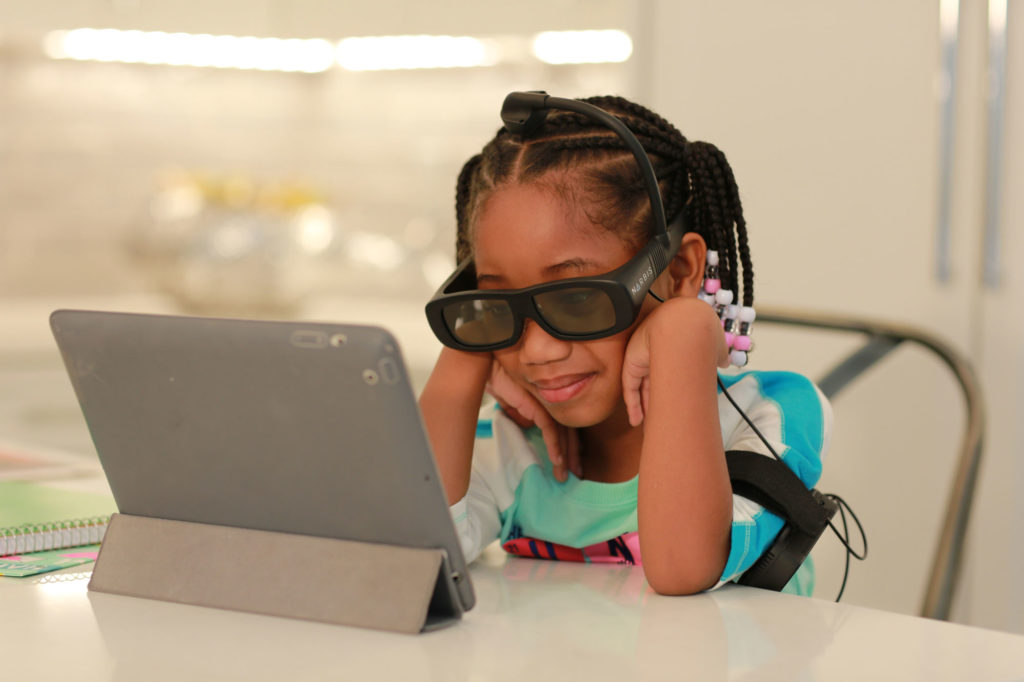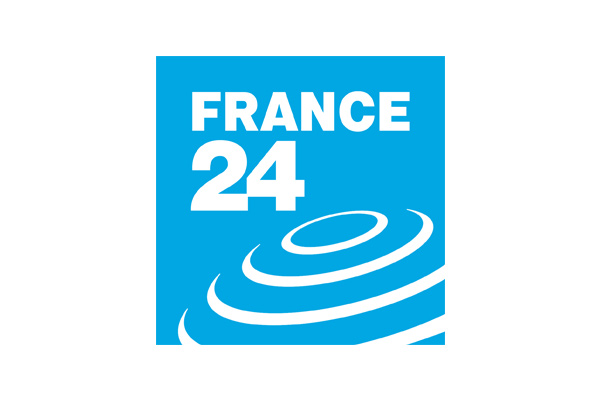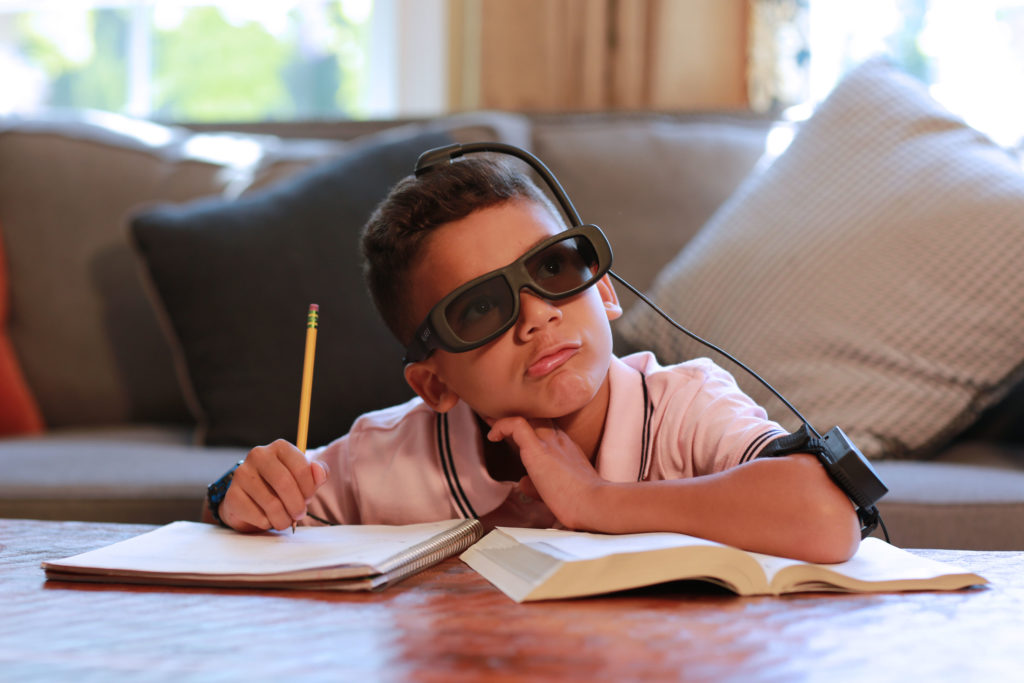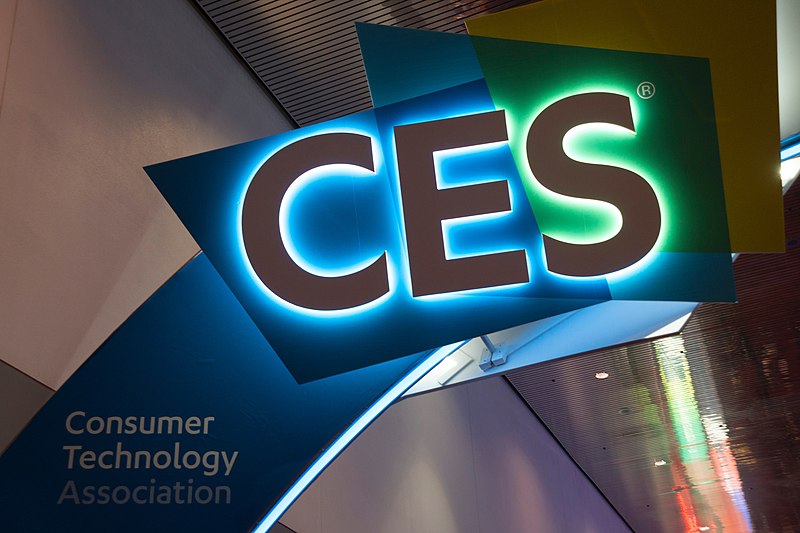Unless you’ve been living in an Internet cave—or perhaps a cave without Internet—you know that this past week was the Consumer Electronics Show (CES). What started out in 1967 in New York, featuring that year’s big-ticket items of pocket radios and integrated-circuit TVs, has evolved over the intervening decades into an annual pilgrimage to Las Vegas to check out the latest trends in technology and putter with the latest gadgets.
Over some 2.9 million square feet of exhibition space, roughly 175,000 attendees wandered more than 4,500 exhibitors showing the latest developments in tech this January. Among the 2020 roster of companies hoping to inspire with their wares was faux meat leader Impossible Foods, Delta’s AI / machine-learning platform to help streamline common air travel woes including inclement weather and oversized baggage—and this year, for the first time, our Narbis smart glasses, which employ neurofeedback technology developed for NASA pilots and help the wearer learn to maintain focus.

Thousands of people walked past our booth at the Sands Casino’s Eureka Park showroom, which has a reputation among industry insiders as “the buzzworthy startup arena” at CES. We met with key members of the media who spoke with Narbis executives and got to try out our signature glasses for themselves.

Steve Koenig, the vice president of market research at the Consumer Technology Association, the organization that puts on CES, mentioned that smart glasses and other vision-based wearables as being poised to have a “breakout year” in 2020, as cited by Jason Bracelin of the Las Vegas Review-Journal. Narbis was at the top of the list in his roundup of “four advancements in AR tech to keep an eye on”
“Your child’s homework load is laborious enough without distractions. These glasses are intended to combat a lack of focus using neurofeedback and a NASA-developed algorithm that trains the brain to reduce distractibility. The lenses get tinted when the wearer becomes distracted and clear when concentrating, training the brain to stop straying. Currently accepting pre-orders ($100 deposit) for a March ship date with a retail price of $590.”

It’s not just smart glasses that are on track to be a dominant tech trend in 2020. Wearable tech to monitor biodata and improve overall health was a trend noted at CES by Elizabeth Lee, reporter for the Voice of America. She spoke with Narbis CEO Devon at the event. Here are some of her takeaways from their conversation:
“‘With technology, we’re finding that people are reducing their ability to pay attention over long periods of time’,” said Devon Greco, CEO and founder of Narbis.
The smart glasses use algorithms adopted from NASA, with the original purpose of monitoring the attention of pilots as they fly a flight simulator or a plane, Greco said…
‘The brain will naturally want to see light. So, light is a natural reward and dark is a penalty. And so, the brain just kind of learns through trial and error what is good and what is bad,’ explained Greco, who said clinical studies of a dozen people have found that after 20 sessions, users experienced an improvement in attention.”

The intersection of wearable tech and brain-computer interfaces was at the heart of the story that came out of the conversation between Greco and Lindsey Theis, reporter for Newsy. Some of Greco’s thoughts about recent developments in wearables that he shared with the digital broadcast news network:
“Well, with wearable technology, we’re seeing a lot of innovation in the different types of sensing technology. We see with the Apple Watch, they’re able to measure very sophisticated heart rate and variability and other types of metrics. Miniaturization of the sensor technology has really enabled this field to blossom.”

Founded in Paris in 1835, AFP is the world’s oldest newswire service. Reporting from 201 offices in 151 countries, the organization has deep reach and influence across global media, with many top-tier news outlets syndicating its content. AFP stopped by the Narbis booth during CES 2020 to learn more about our neurofeedback smart glasses; the article was syndicated by several publications around the world, including those based in France, Pakistan, and Singapore:
“A different kind of smart eyewear from US startup Narbis uses neurofeedback for brain exercises which can help boost concentration, notably for children with attention deficit disorders.
Using a NASA-developed algorithm, the glasses become tinted when the wearer is distracted and clear when calm and concentrating.
‘You can wear this for 20 to 30 minutes a day and your brain develops the ability to pay attention better,’ said Narbis’s Jay Arcata, who added that the device is also being tested for helping with certain kinds of dementia.”

Neurofeedback is getting the attention of the press and made waves during CES 2020. Narbis is making headlines. Not bad for a company whose signature product is intended to hone focus.







